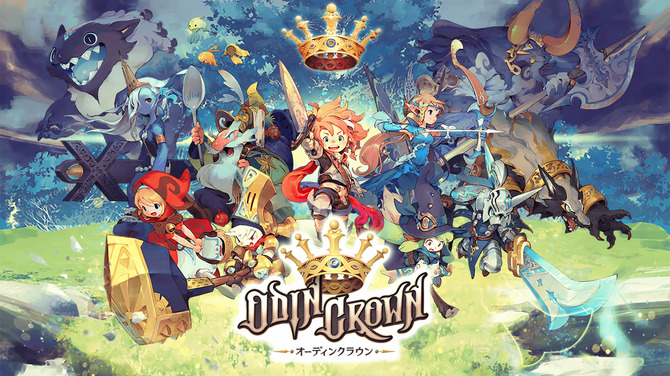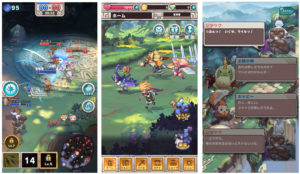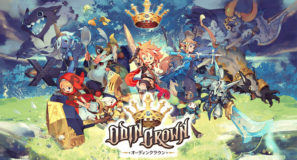 I have been playing a lot of mobile games recently. I live in Japan and I have an hour commute to and from work everyday. I have been trying to put that time to use by delving into the mobile game scene. I’ve never really been a person who plays a lot of phone games. I love mobile games, don’t get me wrong. I have have a Game Boy since the original debuted and I have had a Nintendo portable in my bag ever since that time but, when phones started to flex their own mobile game muscles, I never really bought in. At first it was the cost associated with playing sub-par arcade ports. I didn’t have an iPhone when that marketplace took off so I missed out on a lot of the games that game out during that heyday. I have since gone back to play quite a few of them but since then free-to-play mobile games have taken over the zeitgeist and I have played quite a few of those offerings and found them to be infuriatingly similar.
I have been playing a lot of mobile games recently. I live in Japan and I have an hour commute to and from work everyday. I have been trying to put that time to use by delving into the mobile game scene. I’ve never really been a person who plays a lot of phone games. I love mobile games, don’t get me wrong. I have have a Game Boy since the original debuted and I have had a Nintendo portable in my bag ever since that time but, when phones started to flex their own mobile game muscles, I never really bought in. At first it was the cost associated with playing sub-par arcade ports. I didn’t have an iPhone when that marketplace took off so I missed out on a lot of the games that game out during that heyday. I have since gone back to play quite a few of them but since then free-to-play mobile games have taken over the zeitgeist and I have played quite a few of those offerings and found them to be infuriatingly similar.
My first foray into modern mobile games was the Jurassic Park builder. I kept with that one for a few months. I then moved to Pocket Planes. When I was living in Kumamoto, I remember staying in Japan one Christmas with my friend Andrew. We went out drinking nearly every night and we woke up and played Pocket Planes until the sun went down and that was basically it. I have played others. I played the Simpson’s one for a bit. I played a Final Fantasy one recently. Most recently, I played a Crazy Taxi game for a few months. Now, I am done. I would rather spend my time reading news or playing other games that have an end goal or a reason to play besides just clicking.
I haven’t given up on mobile games. I just don’t want anything to do with free-to-play stuff most of the time; especially clickers.
I speak Japanese so I’ve been trying to find games in the Japanese store to play while learning some new words. The Japanese store isn’t much better than the American app store, most of the games are terrible. Recently I’ve been playing a battle royale game called Knives Out in the West, in Japan it’s called Koyakodou. It isn’t bad. A lot of the boys at my school play it which is the reason why I downloaded it and gave it a try. After tens of hours I decided that it isn’t any better than Player Unknown: Battlegrounds on mobile and neither of those games are as good Fortnite on mobile. 
One game I did find and really enjoyed recently is a game called Odin Crown. Odin Crown is a simple MOBA. MOBAs are still a new thing for the Japanese audience which is why I gravitated towards this game. I’ve been playing a lot of Arena of Valor, which is a traditional MOBA. (It is fantastic!) Odin Crown set up the rules of playing MOBAs for a Japanese audience. I enjoyed going through their tutorial and found it easy to understand. The tutorial was presented in a single player environment which helped the player adapt to the concepts of playing a MOBA. Once I played through the tutorial, I started playing online nearly everyday on the train to school.
 The art style of Odin Crown was cute and it had the free-to-play elements that make those games addictive but it had the MOBA that actually challenged the player to fight strategically and work as a team with the other players on their team.
The art style of Odin Crown was cute and it had the free-to-play elements that make those games addictive but it had the MOBA that actually challenged the player to fight strategically and work as a team with the other players on their team.
The problem that I found, and I find this a lot with Japanese Mobile games, is that the services will shut down quicker than a Japanese cicada’s life-span. Odin Crown released earlier this year and it was shut down by July. It was available for less than six months. Now, I’m sure that this decision was made because it didn’t have the player base to support it’s continued development but that doesn’t take away the feeling that I got burned. I didn’t spend any money on the game but I did invest time in it. Time that I enjoyed.
There are tons of games out there, in Japan and all over the world, that have healthy lifespans but most of those games are trash. When a game like Odin Crown, that tries something new while also implementing the current free-to-play model and tries to bring the gospel of MOBAs to Japan, comes out and it fails, it sucks that there is nothing that I could have done to make it last. It was never localized into English so the player market was already small. It was trying to bring something new to an audience that should be all in but it didn’t quite capture the attention of that market.
I guess it’s just kind of lonely being one of the few people who played and enjoyed this game. It’s lonely being one of the only Westerners who enjoyed it as well. It’s demoralizing to think that I will need to wade back into the void to try and find another diamond in the rough.




